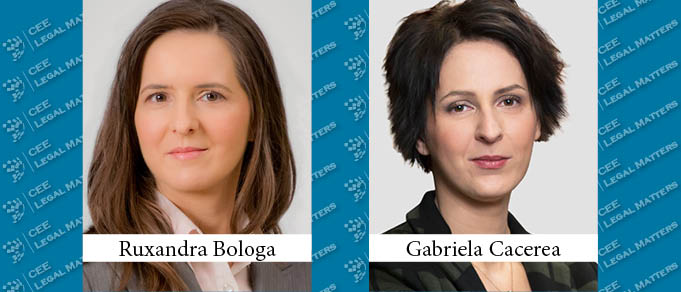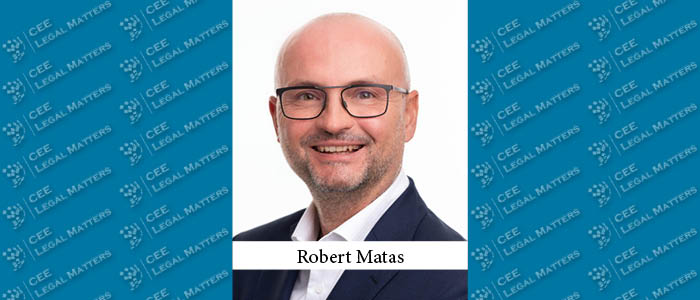Providing insights into Nestor Nestor Disculescu Kingston Petersen’s most active practice areas, Partners Ruxandra Bologa and Gabriela Cacerea took a deep dive into the firm’s Corporate/M&A and Energy and Natural Resources practices.
“Corporate/M&A and Energy and Natural Resources are a good match,” Bologa begins. “It makes sense to combine these because the energy practice area is relatively new in the Romanian market. Luckily for us, being a veteran firm, we’ve had some of the initial mandates for the privatizations of energy companies in the country, so we’ve developed a hefty energy expertise,” she explains.
As for this year, Bologa shares that it has been a rather challenging one. “Especially for lawyers, it has been a tough year with a lot of work being generated on account of the war in Ukraine and the transition to green energy.” As Bologa explains, this kind of work engages both energy and M&A specialists, making their work synergetic.
“Speaking specifically about energy, we’ve had a couple of projects which we think to be quite unique,” Bologa reports. “Firstly, the Exxon Mobil Romanian market exit, which saw Exxon leave the market after more than a decade; and secondly, the OMV Petrom – Complexul Energetic Oltenia joint venture. The joint venture led to the creation of four solar park projects and is especially important for OMV from a strategic standpoint, seeing as how it facilitates its transition to more sustainable energy sources,” she explains. “The JV partners have chosen rather challenging locations for the solar parks, but they will build them on mining-waste storage ground – meaning that it’s a win-win from an ecological point of view.”
Chiming in, Cacerea adds the two main drivers for NNDKP’s Energy practice have been “the measured governmental support to the industry in the context of the energy crisis” as well as “the associated mandates and consultations to make sure that clients are satisfied. Most of the time, certain actors such as suppliers and industrial consumers are not getting enough support, meaning that they had to unearth different ways to get it,” she explains. “We have seen quite a high number of mandates for supplier clients that were heavily impacted by the government's support schemes.”
Furthermore, Cacerea elucidates that the practice also saw a number of “shorter agreements – those lasting not for a year, but for about three months. Additionally, renewables acquisitions were prominent, especially for wind energy – we assisted Emergy in entering the Romanian market and in the authorization process to move ahead with a 300-megawatt project.”
Lastly, Cacerea explains that “the state generated work for us as well – with all the legislative adjustments and the implementation of measures in a way that leaves a lot to be desired – we had a lot of work as a consequence of administrative blockages that caused our clients headaches,” she shares.
Explaining more about the inner structure of the Corporate/M&A and Energy and Natural Resources practices, Bologa shares that “it is a large team – we have a core team focusing on energy, M&A, and regulatory – with the two partners co-heading the Energy and Natural Resources practice having more than 20 years of experience. This allows us to have a good handle on projects and to be quite flexible when it comes to multitasking a wide variety of different, significant projects at the same time,” she explains. “M&A in energy is particularly challenging, and we are lucky enough to be properly staffed to be able to take on all the tectonic shifts in the legislative landscape – which often occur almost overnight and profoundly alter the playing field for many businesses,” she says.
Finally, looking ahead, Bologa believes that the activity levels of the “practice will stay the same or increase – crisis or not, we have enough work for the next 12 months. The energy transition is a non-negotiable fact of life that businesses have to deal with – which, in turn, means that we will stay busy as well,” she reports. “The main challenge for Romania will be to improve the overall quality of regulations – and especially their implementation – to ensure consistent levels of investor presence.”
Indeed, Cacerea agrees, adding that “investors don’t have to wait for Romanian authorities to improve things – they have other options – so we need an open dialogue on normative acts that would increase the levels of investor safety by increasing transparency and predictability going forward.”





























